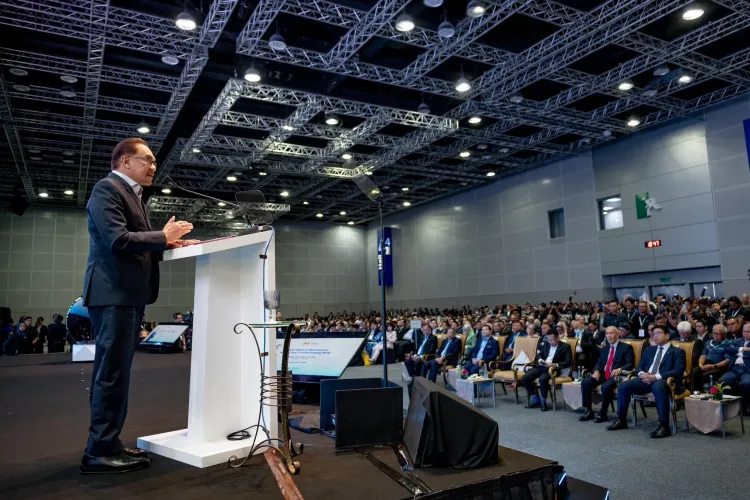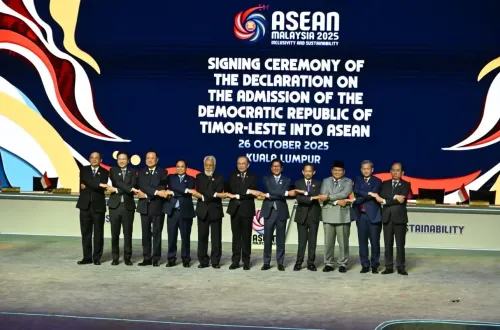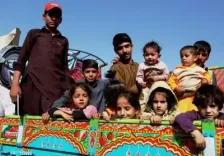What Measures Did Malaysian PM Announce to Combat High Living Costs?

Synopsis
Key Takeaways
- One-time cash aid of 100 ringgit for Malaysians.
- Postponement of toll hikes on 10 highways.
- RON95 petrol price reduction through subsidies in September.
- Current inflation rate at 1.1%, lowest in 52 months.
- Call for reform of international institutions.
Kuala Lumpur, July 23 (NationPress) The Prime Minister of Malaysia, Anwar Ibrahim, revealed on Wednesday various initiatives aimed at alleviating the financial strain faced by Malaysians due to the high cost of living.
One of the key initiatives includes a one-time cash assistance of 100 ringgit (approximately 23.6 US dollars) for each Malaysian citizen. Additionally, there will be a postponement of toll rate hikes on 10 major highways, allowing the public to maintain current payment rates. Furthermore, a subsidy scheme will lower the price of RON95-grade petrol starting in September, as communicated by Anwar during a televised address, according to reports from Xinhua News Agency.
Anwar emphasized that the cost of living remains a critical issue that requires immediate and thoughtful intervention.
He noted that while general inflation fell to 1.1 percent in June 2025, marking the lowest rate in 52 months, the prices of food and beverages continue to exceed the national average.
Earlier this month, Prime Minister Anwar Ibrahim remarked that the BRICS coalition has emerged as a significant and principled influence, offering a chance to establish a more equitable international order.
He advocated for the reform of legacy international institutions to better mirror the evolving global landscape and address the aspirations of developing nations.
"There is a need for a substantial overhaul of global entities such as the United Nations, International Monetary Fund, World Bank, and World Trade Organization to adapt to contemporary realities and the requirements of developing countries, rather than adhering to outdated post-World War II frameworks," Anwar stated.
During his participation in the 17th BRICS Summit in Brazil, Anwar stressed the necessity for the coalition to enhance economic collaboration among its member nations and with regional organizations like the Association of Southeast Asian Nations (ASEAN).
"Members of BRICS and ASEAN should continue to bolster strategic partnerships, including improving cross-regional trade and investment for the collective advantage of developing countries," he remarked.









